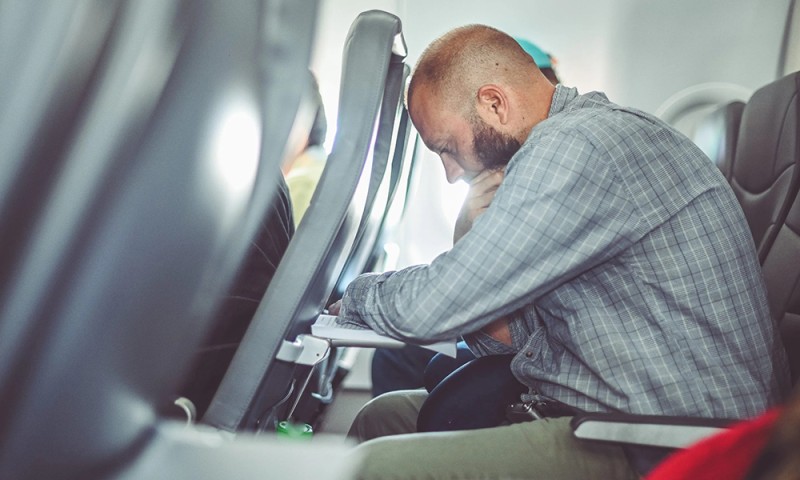
• 达美航空(Delta)制定了长期战略,通过摒弃固定票价模式、转向基于人工智能的个性化定价来提升盈利能力。该公司表示,当下人工智能定价机制已应用于3%的机票,试点项目截至目前成效“显著向好”。隐私维权人士担忧此举会引发价格欺诈,一位消费者权益代言人将此策略比作“黑客入侵我们的大脑”。
在公布超预期的财报后,达美航空正进一步借助人工智能技术来提高利润率,其途径是充分挖掘每位乘客的票价支付潜力以实现效益最大化。
达美航空总裁格伦·豪森斯坦(Glen Hauenstein)上周向投资者透露,到今年年底,该公司计划将人工智能个性化定价的机票占比提升至20%。目前,该公司约3%的航班票价由人工智能决定,这一比例是九个月前的三倍。
在11月举办的公司投资者日活动上,豪森斯坦解释道,长期规划是彻底摒弃静态定价模式。
“这是对我们现有定价方式及未来定价体系的全面重构,”他表示,最终目标是“针对每位乘客,在特定航班、特定时间提供专属价格”。
他将人工智能比作“超级分析师”:“它全天24小时、每周7天持续工作,试图模拟……实时票价应如何设定?”
尽管该计划的推行将历经“数年”,但他表示,初步结果显示“单位收入显著提升”。
达美航空通过与以色列公司Fetcherr合作实现这一定价模式。这家公司成立已有六年之久,其客户还包括巴西阿苏尔航空(Azul)、西捷航空(WestJet)、维珍航空(Virgin Atlantic)和VivaAerobus。Fetcherr的目标并不局限于航空领域。其联合创始人罗比·尼桑(Robby Nissan)在2022年的一场旅游会议上表示,“一旦在航空业站稳脚跟,我们将进军酒店、租车、游轮等领域”。
“入侵大脑”
尽管达美航空在人工智能的应用方面展现出超乎寻常的透明度,但其他航空公司极有可能纷纷效仿。目前,美联航(United Airlines)已运用生成式人工智能向乘客发送航班取消通知,美国航空(American Airlines)则借助该技术预测哪些乘客可能错过航班。
“过去十多年里,实现个性化定价一直是航空公司的目标,”最早留意到达美航空人工智能定价战略的旅游业权威人士加里·莱夫(Gary Leff)向《财富》杂志透露,“达美航空是首家如此公开讨论人工智能定价的航空公司,不仅在秋季投资者日上宣传其潜在收益,还在近期的财报电话会议中给出具体使用数据。”
隐私维权人士对达美航空的这一举措表示担忧。“他们试图窥探人们的想法,摸清大家究竟愿意支付多少费用,”加州非营利组织Consumer Watchdog的贾斯汀·克洛茨科(Justin Kloczko)表示,他专门分析所谓的“监控定价”。“这本质上是在入侵我们的大脑。”
亚利桑那州民主党参议员鲁本·加列戈(Ruben Gallego)称达美航空的做法是“掠夺性定价”,并表示“绝不会坐视他们如此行事”。
达美航空的一位发言人告诉《财富》杂志,该航空公司“对歧视行为零容忍。我们的票价均已公开备案,定价仅依据行程相关要素,如提前购票时长和舱位等级,且我们设有严格的保障机制,以确保符合联邦法律要求”。
但当被追问这些保障机制的具体内容、是人工还是自动执行,以及目前由Fetcherr设定的3%票价是否已公开备案时,该发言人未立即回应。
“公平”定价时代终结
诚然,航空公司长期以来针对同一航线向不同乘客收取不同票价,其依据包括购票渠道(直接购票、通过比价网站或旅行社)、提前购票时长等因素。早在十年前,旅行网站便会根据购票者使用的浏览器等细节,对同一行程显示不同票价。但人工智能的应用极大地强化了这种价格歧视,并使航空公司陷入法律层面的灰色地带。
“人工智能不仅能优化商业运营,还能从根本上重塑商业规则,改写消费者体验。”《人工智能世代》(Generation AI)一书作者马特·布里顿(Matt Britton)向《财富》杂志表示,“对消费者而言,这意味着‘公平’定价时代终结。你看到的票价是算法认为你能接受的价格,而非统一划定的价格。”
虽然差异化定价行为本身并不触犯法律红线,但联邦法律禁止基于性别或种族对不同人群收取不同费用,且使用某些标识符(如邮政编码)已被证明会对受保护群体造成不平等影响。由于缺乏所有票价的公开记录,要确定达美航空是否因乘客属于受保护群体而收取截然不同的票价,将极为困难,甚至不可能。
更为复杂的是,尽管行业专家预计人工智能将为达美航空带来更多收入,但对乘客的影响尚不明确。莱夫表示,短期内,当达美航空需要填补航班座位空缺时,运用人工智能或许意味着会提前释放出更多的折扣优惠。就短期而言,消费者在搜索机票价格时,使用虚拟专用网络(VPN)并清除浏览器缓存可能会受益,但从长远来看,达美航空及其他航空公司可能要求乘客“在购票时登录账户以获取航空公司的会员权益——本质上是要求乘客完全进入其生态系统,方可享受相应福利(例如接受个性化定价以获得有额外腿部空间的座位)”,莱夫说道。有关个性化定价的早期研究显示,结果对消费者而言不容乐观。Consumer Watchdog发现,最优惠的价格常常提供给最富有的客户群体,最不划算的价格则提供给最贫困的人群,而这部分人群极有可能缺乏其他可供选择的替代方案。(*)
译者:中慧言-王芳
• 达美航空(Delta)制定了长期战略,通过摒弃固定票价模式、转向基于人工智能的个性化定价来提升盈利能力。该公司表示,当下人工智能定价机制已应用于3%的机票,试点项目截至目前成效“显著向好”。隐私维权人士担忧此举会引发价格欺诈,一位消费者权益代言人将此策略比作“黑客入侵我们的大脑”。
在公布超预期的财报后,达美航空正进一步借助人工智能技术来提高利润率,其途径是充分挖掘每位乘客的票价支付潜力以实现效益最大化。
达美航空总裁格伦·豪森斯坦(Glen Hauenstein)上周向投资者透露,到今年年底,该公司计划将人工智能个性化定价的机票占比提升至20%。目前,该公司约3%的航班票价由人工智能决定,这一比例是九个月前的三倍。
在11月举办的公司投资者日活动上,豪森斯坦解释道,长期规划是彻底摒弃静态定价模式。
“这是对我们现有定价方式及未来定价体系的全面重构,”他表示,最终目标是“针对每位乘客,在特定航班、特定时间提供专属价格”。
他将人工智能比作“超级分析师”:“它全天24小时、每周7天持续工作,试图模拟……实时票价应如何设定?”
尽管该计划的推行将历经“数年”,但他表示,初步结果显示“单位收入显著提升”。
达美航空通过与以色列公司Fetcherr合作实现这一定价模式。这家公司成立已有六年之久,其客户还包括巴西阿苏尔航空(Azul)、西捷航空(WestJet)、维珍航空(Virgin Atlantic)和VivaAerobus。Fetcherr的目标并不局限于航空领域。其联合创始人罗比·尼桑(Robby Nissan)在2022年的一场旅游会议上表示,“一旦在航空业站稳脚跟,我们将进军酒店、租车、游轮等领域”。
“入侵大脑”
尽管达美航空在人工智能的应用方面展现出超乎寻常的透明度,但其他航空公司极有可能纷纷效仿。目前,美联航(United Airlines)已运用生成式人工智能向乘客发送航班取消通知,美国航空(American Airlines)则借助该技术预测哪些乘客可能错过航班。
“过去十多年里,实现个性化定价一直是航空公司的目标,”最早留意到达美航空人工智能定价战略的旅游业权威人士加里·莱夫(Gary Leff)向《财富》杂志透露,“达美航空是首家如此公开讨论人工智能定价的航空公司,不仅在秋季投资者日上宣传其潜在收益,还在近期的财报电话会议中给出具体使用数据。”
隐私维权人士对达美航空的这一举措表示担忧。“他们试图窥探人们的想法,摸清大家究竟愿意支付多少费用,”加州非营利组织Consumer Watchdog的贾斯汀·克洛茨科(Justin Kloczko)表示,他专门分析所谓的“监控定价”。“这本质上是在入侵我们的大脑。”
亚利桑那州民主党参议员鲁本·加列戈(Ruben Gallego)称达美航空的做法是“掠夺性定价”,并表示“绝不会坐视他们如此行事”。
达美航空的一位发言人告诉《财富》杂志,该航空公司“对歧视行为零容忍。我们的票价均已公开备案,定价仅依据行程相关要素,如提前购票时长和舱位等级,且我们设有严格的保障机制,以确保符合联邦法律要求”。
但当被追问这些保障机制的具体内容、是人工还是自动执行,以及目前由Fetcherr设定的3%票价是否已公开备案时,该发言人未立即回应。
“公平”定价时代终结
诚然,航空公司长期以来针对同一航线向不同乘客收取不同票价,其依据包括购票渠道(直接购票、通过比价网站或旅行社)、提前购票时长等因素。早在十年前,旅行网站便会根据购票者使用的浏览器等细节,对同一行程显示不同票价。但人工智能的应用极大地强化了这种价格歧视,并使航空公司陷入法律层面的灰色地带。
“人工智能不仅能优化商业运营,还能从根本上重塑商业规则,改写消费者体验。”《人工智能世代》(Generation AI)一书作者马特·布里顿(Matt Britton)向《财富》杂志表示,“对消费者而言,这意味着‘公平’定价时代终结。你看到的票价是算法认为你能接受的价格,而非统一划定的价格。”
虽然差异化定价行为本身并不触犯法律红线,但联邦法律禁止基于性别或种族对不同人群收取不同费用,且使用某些标识符(如邮政编码)已被证明会对受保护群体造成不平等影响。由于缺乏所有票价的公开记录,要确定达美航空是否因乘客属于受保护群体而收取截然不同的票价,将极为困难,甚至不可能。
更为复杂的是,尽管行业专家预计人工智能将为达美航空带来更多收入,但对乘客的影响尚不明确。莱夫表示,短期内,当达美航空需要填补航班座位空缺时,运用人工智能或许意味着会提前释放出更多的折扣优惠。就短期而言,消费者在搜索机票价格时,使用虚拟专用网络(VPN)并清除浏览器缓存可能会受益,但从长远来看,达美航空及其他航空公司可能要求乘客“在购票时登录账户以获取航空公司的会员权益——本质上是要求乘客完全进入其生态系统,方可享受相应福利(例如接受个性化定价以获得有额外腿部空间的座位)”,莱夫说道。有关个性化定价的早期研究显示,结果对消费者而言不容乐观。Consumer Watchdog发现,最优惠的价格常常提供给最富有的客户群体,最不划算的价格则提供给最贫困的人群,而这部分人群极有可能缺乏其他可供选择的替代方案。(*)
译者:中慧言-王芳
• Delta has a long-term strategy to boost its profitability by moving away from set fares and toward individualized pricing using AI. The pilot program, which uses AI for 3% of fares, has so far been “amazingly favorable,” the airline said. Privacy advocates fear this will lead to price-gouging, with one consumer advocate comparing the tactic to “hacking our brains.”
Fresh off a victory lap after a better-than-expected earnings report, Delta Air Lines is leaning into AI as a way to boost its profit margins further by maximizing what individual passengers pay for fares.
By the end of the year, Delta plans for 20% of its ticket prices to be individually determined using AI, president Glen Hauenstein told investors last week. Currently, about 3% of the airline’s flight prices are AI-determined, triple the portion from nine months ago.
Over time, the goal is to do away with static pricing altogether, Hauenstein explained during the company’s Investor Day in November.
“This is a full reengineering of how we price and how we will be pricing in the future,” he said. Eventually, “we will have a price that’s available on that flight, on that time, to you, the individual.”
He compared AI to “a super analyst” who is “working 24 hours a day, seven days a week and trying to simulate… real time, what should the price points be?”
While the rollout would be a “multiyear” process, he said, initial results “show amazingly favorable unit revenues.”
Delta accomplishes this pricing through a partnership with Fetcherr, a six-year-old Israeli company that also counts Azul, WestJet, Virgin Atlantic, and VivaAerobus as clients. And it has its sights set beyond flying. “Once we will be established in the airline industry, we will move to hospitality, car rentals, cruises, whatever,” cofounder Robby Nissan said at a travel conference in 2022.
‘Hacking our brains’
While Delta is unusually open about its use of AI, other carriers are likely to follow. Already, United Airlines uses generative AI to contact passengers about cancellations, while American Airlines uses it to predict who will miss their flight.
“Personalized pricing has been an airline goal for the past decade and a half,” Gary Leff, a travel industry authority who first noted Delta’s AI strategy, told Fortune. “Delta is the first major airline to speak so publicly about its use of AI pricing, to tout it for its potential upside at its investor day in the fall and to offer concrete metrics around its use in its recent earnings call.”
Privacy advocates noted Delta’s development with concern.“They are trying to see into people’s heads to see how much they’re willing to pay,” said Justin Kloczko, who analyzes so-called surveillance pricing for Consumer Watchdog, a California nonprofit. “They are basically hacking our brains.”
Sen. Ruben Gallego (D-Ariz.) called Delta’s practice “predatory pricing,” saying, “I won’t let them get away with this.”
A Delta spokesperson told Fortune the airline “has zero tolerance for discrimination. Our fares are publicly filed and based solely on trip-related factors like advance purchase and cabin class, and we maintain strict safeguards to ensure compliance with federal law.”
The spokesperson did not immediately answer follow-up questions on what those safeguards were, whether they are human or automated, or where the 3% of fares that are currently set via Fetcherr are publicly filed.
‘Fair’ pricing is over
To be sure, airlines have long offered different prices to different people, even for the same route, based on factors like how travelers book—directly, via a comparison-shopping site or a travel agent—or how far in advance they shop. As far back as a decade ago, travel websites showed different prices for precisely the same itinerary based on details like which browser a purchaser was using to search for fares. But the use of AI supercharges this type of price discrimination and puts airlines into a legal gray area.
“AI isn’t just optimizing business operations, but fundamentally rewriting the rules of commerce and consumer experience,” Matt Britton, author of Generation AI, told Fortune. “For consumers, this means the era of “fair” pricing is over. The price you see is the price the algorithm thinks you’ll accept, not a universal rate.”
While differential pricing is not illegal per se, federal laws prohibit charging different rates to people based on their sex or ethnicity, and the use of some identifiers like ZIP codes have been shown to have a disparate impact on protected classes. Without a public record of all fares, it would be difficult, if not impossible, to determine if Delta is charging vastly different fares to people based on their membership in a protected class.
To complicate matters, while industry experts expect the impact of AI to mean more revenue for Delta, the impact for individual passengers is less certain. In the short-term, AI might mean more discounts offered upfront when Delta needs to fill seats, said Leff. Short-term, shoppers might benefit from using a VPN and clearing cookies when browsing for airfares, but long-term, Delta and other airlines might require passengers “to be logged in for purchase of tickets in order to obtain status benefits from an airline, essentially being fully within their ecosystem to gain the benefits of that system (i.e. submit to personalized pricing to get extra legroom seats),” Leff said. Early research on personalized pricing isn’t favorable for the consumer. Consumer Watchdog found that the best deals were offered to the wealthiest customers—with the worst deals given to the poorest people, who are least likely to have other options.

